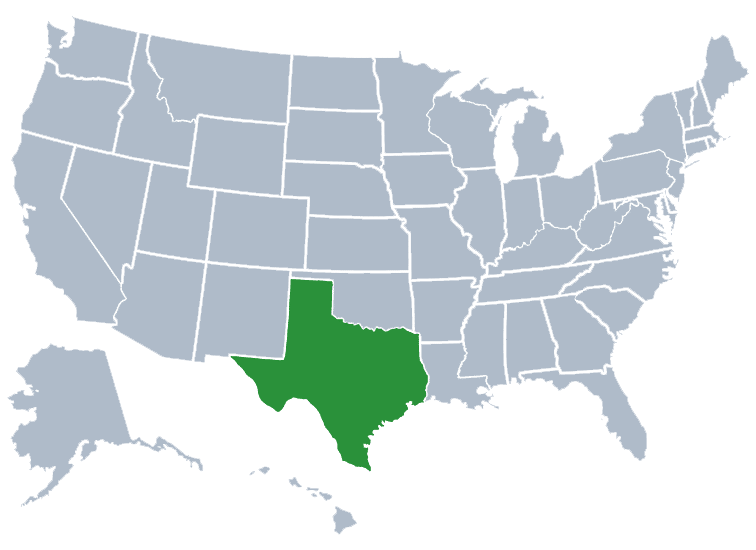Why Choose Advo Medical Waste Disposal Company?
If your current local medical waste disposal service in Texas doesn’t provide top notch service with the best pricing, then it’s time to switch to Advo medical waste disposal company. Here are some reasons why:
See how Advo Medical Waste Disposal beats the competition in Texas.
1. Superior Service
Our service is better than the competition. We offer quick and prompt TX medical waste pickup services with the flexibility you need to meet your needs.
2. Guaranteed Lower Prices
We guarantee to save you at least 30% off of your current local TX medical waste disposal service in Texas. We will provide you with an accurate price with a quick over the phone quote.
3. Simple Invoicing With No Hidden Fees
Our invoices are clear and easy to understand. We'll never hit you with any unexpected surcharges, environmental fees or administration fees. We guarantee that the price we quote you will be accurate.
4. Full Compliance With all Texas State and Federal Medical Waste Regulations
Advo Waste is a fully licensed and insured medical waste disposal company, and we guarantee to remain in 100% full compliance. Our highly skilled staff can conduct a compliance review of your facility as well as train your employees in proper handling and disposing of medical waste in your office.
5. Professional and Responsive Service Staff
All of our employees are highly trained and certified in handling and disposing of your medical waste and sharps. They have passed background checks and are subject to random drug tests to ensure that we have the highest quality employees.
6. Our Money-Back Guarantee
If you’re not happy with our service, we promise to make it right or we’ll refund your service fee.
Types of Medical Waste We Handle
Pathological waste
Biological waste
Sharps
Chemotherapy waste
Cultures and stocks of infectious agents
Discarded medical equipment and parts
and More
Medical Waste Classifications
Biomedical waste includes needles / sharps, chemotherapy waste, pathological waste, biological waste, cultures and stocks of infectious agents, discarded medical equipment and parts and more.
Storage of Medical Waste
Biomedical waste is contained in a manner and location which provides protection from animals, the weather, does not provide a breeding place for insects or rodents, and minimizes any exposure to the public. The containers shall be labeled with the biohazard symbol so that it is readily visible from any direction. Biomedical waste must be stored in rigid containers leak proof containers and securely closed before transportation.
Information About Texas
Texas is a US State and is the second largest state in the United States, both by population and also by area. Texas is located in the South Central region of the country. Texas shares borders with both the U.S. states as well as the Mexican States, Nuevo Leon, Tamaulipas and Chihuahua to name a few. The Gulf of Mexico is also located to the southeast of Texas.
The most populous city in Texas is Houston. Houston is the fourth largest city in the United States. San Antonio is the second most populous city in the state. Texas is nicknamed “The Lone Star State”, which signifies its former status as an independent republic, and also as a reminder of the state’s struggle for independence from Mexico. The Lone Star can be found on the Texas state seal as well as the Texas state flag.
Throughout the 20th century, some major things happened in Texas. Texas suffered the deadliest natural disaster in U.S. history in 1900, during the Galveston hurricane. The first major oil well in Texas was found south of Beaumont. Other fields were then later discovered nearby in West and East Texas as well as under the Gulf of Mexico and this oil boom transformed Texas. Oil production eventually averaged three million barrels per day at its peak in 1972. President John F. Kennedy was assassinated in Dallas on November 22, 1963.
Texas is the second largest state in the nation, Texas is home to pine forests, deserts and the Rio Grande river that separates the state from its Mexican neighbor. Popularly known as “The Lone Star State,” Texas was once an independent republic and remembers the struggle for independence from Mexico with the “The Lone Star” still seen on their flag today. Historically speaking, Texas is most synonymously associated with The Alamo, a pivotal event in the Texas Revolution. Mexican regimes attacked and killed Texian defenders. This spot has become a popular tourist attraction and the inspiration for many movie and television adaptations.
Texas has the second largest gross state product (GSP) in the United States due to its large population and abundance of natural resources. Prior to World War II, Texas was popular for four major industries: cattle and bison, cotton, timber and oil. However, with new technological advances, Texas leads in a variety of industries including agriculture and energy. Moving into the 20th century Texas’ most popular pastime went from the origin and popularization of Western cowboys to football and is home to America’s team- the Dallas Cowboys.
Types of Biohazardous Waste
- Cultures and stocks of infectious agents
- Pathological waste
- Sharps that have been used in human or animal patient care or in medical, research, or industrial laboratories
- Contaminated animal carcasses, body parts, and bedding of animals that were exposed to infectious agents during research
- Any discarded preparations made from genetically altered living organisms and their products
- Waste human blood and products of blood
- Wastes from human or animal patient care, surgery or autopsy that were in contact with infectious agents
- Laboratory wastes from medical, pathological, pharmaceutical, or other research
- Dialysis wastes that were in contact with the blood of patients undergoing hemodialysis
- Discarded medical equipment and parts that were in contact with infectious agents
- Biological waste and discarded materials contaminated with blood, excretion
- Such other waste material that results from the administration of medical care to a patient whether human or animal by a health care provider and is found by the director in consultation with the division of public health services or state veterinarian to pose a threat to human health or the environment due to its infectious nature.
Cities We Service in Texas
We proudly provide service the following cities in Texas: Houston, San Antonio, Dallas, Austin, Fort Worth, El Paso, Arlington, Corpus Christi, Plano, Laredo, Lubbock, Garland, Irving, Amarillo, Grand Prarie, Brownsville, Pasadena, Mesquite, McKinney, Laredo, Waco, McAllen, Killeen, Carrollton, Beaumont, Abilene, Frisco, Denton, Midland, Wichita Falls, Odessa and more TX medical waste.
Get your quote



























